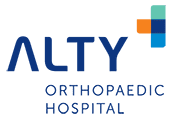Introduction
The heart and vascular system, or cardiovascular system, is made up of the heart, which functions as a pump, and the blood vessels (arteries, veins and capillaries) that supply blood to the entire body.
Cardiovascular disease is a general term referring to conditions that affect the heart and blood vessels and cardiology is the medical speciality that treats these diseases.
It is a complex field that needs a range of preventive care, screening, advanced diagnostic tests, invasive and non-invasive procedures, post-operative management, cardiac rehabilitation, and a full range of surgical programmes, post-operative management, cardiac rehabilitation, and a full range of surgical programmes.
Our cardiologists are armed with experience and skills, and supported by a team providing strong nursing care.
What are the Symptoms of Cardiovascular Diseases (Heart Diseases)?
- Heaviness, pressure, squeezing, or painful feeling in the chest
- Pain may also be felt in the shoulders, arms, neck, throat, jaw, or back
- Shortness of breath
- Palpitations
- Fatigue or dizziness
- Nausea
- Feeling sweaty along with chest pains
- Weakness
- Overall discomfort
- Fainting
Types of Diseases We Treat
Aortic aneurysm and aortic dissection
Your aorta is the largest blood vessel in the body. Its walls are naturally durable and tough but in some circumstances (such as due to uncontrolled high blood pressure), the aorta wall could weaken and bulge, causing blood to leak or rupture. This condition is called aortic aneurysm, a medical emergency which causes symptoms such as severe pain. In a similar circumstance, aortic dissection is when blood flows between the layers of the aortic wall which can lead to rapid blood loss.
Carotid artery disease
When plaque develops inside the carotid arteries, blood flow gradually decreases and this affects blood supply to the brain and head. This develops into carotid artery disease and if left untreated, it could lead to life-threatening medical emergencies such as a stroke or Transient Ischemic Attack (TIA).Carotid artery disease is said to be responsible for about 20 to 30 percent of all strokes.
Congenital heart disease
Congenital heart disease is an abnormality of the heart structure which is presented from birth. Congenital heart disease can affect the heart’s walls, valves as well as vessels. As congenital heart diseases range from mild to severe, treatment options vary widely as it’s based on the specific condition.
Coronary artery disease
Atherosclerosis is the build-up of cholesterol and plaque in the arteries, causing it to narrow or obstruct arteries. The progression of atherosclerosis can lead to Coronary Artery Disease. Symptoms of this condition include chest pain during exertion and shortness of breath. If left untreated, it can lead to heart attack and heart failure.
Heart arrhythmia
An arrhythmia is an uneven or unusual heartbeat rhythm. There are several types of arrhythmia of the heart such as beating too quickly, slowly or erratically. Heart arrhythmia can affect blood flow as well as pressure. Treatment for heart arrhythmia will depend on the type of arrhythmia you’re diagnosed with. It can range from medication to surgical intervention.
Heart attack
A heart attack happens when blood flow to your heart’s muscles is disrupted due to narrowed arteries caused by plaque or fatty deposits. This affects oxygen supply to the heart and may lead to serious consequences if not restored quickly.
Heart failure
Heart failure is when the heart is not able to pump sufficient amounts of blood according to the body’s demands. The lack of blood supply to other parts of the body including vital organs could result in serious consequences such as breathlessness due to the build-up of fluid in the lungs (oedema), chest pain, fainting and sudden death.
Peripheral arterial disease
Also, caused by atherosclerosis, Peripheral arterial disease, or also known as peripheral artery disease, is narrowed arteries which reduces blood flow to your limbs. The common symptoms of this condition include cramping, numbness or weakness in the legs.
Pleural effusion (fluid around lungs)
Pleural effusion or in layman's terms, ‘water in the lungs’, is the build-up of fluid between the layers of pleura (thin membranes lining the lungs and within the chest cavity) which are located outside of the lungs. This medical condition can develop due to a viral infection, pneumonia or heart failure. Some of its symptoms include shortness of breath, being able to breathe only when the body is upright, chest pain and dry cough.
Pregnancy related cardiac conditions
Some of the bodily changes that occur during pregnancy include an increase in blood volume as well as heart rate to nourish the growing foetus. On top of that, some women undergo a stressful labour and this too could cause changes in blood flow and pressure. Due to these pregnancy-related cardiac changes, heart conditions related to heart rhythm, valve and function may develop as well as existing heart problems could worsen.
Pulmonary arterial hypertension
A rare and progressive disorder, Pulmonary Arterial Hypertension (PAH) is described as hypertension (high blood pressure) of the arteries in the lungs. With PAH, the affected arteries become narrow or blocked and this makes it difficult for blood to flow through the lungs. Hence, this results in the need for the heart to work harder and eventually lead to weakened heart muscles as well as heart failure.
Valvular heart disease
The heart valves - mitral, aortic, tricuspid and pulmonary, play an important role in ensuring a steady and healthy blood flow through the heart. With valvular heart disease, one or more of the heart valves are not able to function well and this could result in backflow or restricted blood flow. Symptoms of Valvular Heart Disease include fainting, fatigue and irregular heartbeat.
Treatments We Offer
We understand that identifying the cause of your symptoms is as important as treating them. ALTY offers a wide range of diagnostic tests, cardiovascular screenings and surgical procedures as we work closely with you, to manage your symptoms.
Cardiac Diagnostics / Screening
- Electrocardiogram (ECG)
An ECG is a quick and pain-free method to monitor your heart health and detect a heart problem. This non-invasive diagnostic method is used to reveal abnormal heart rhythm, blocked or narrowed arteries and the possibility of a previous heart attack, to name a few. Besides being used for diagnosis, ECG is also used to monitor the heart after a heart surgery.
- Trans-thoracic echocardiogram (TTE)
The most common type of echocardiogram is Trans-thoracic echocardiogram (TTE). This diagnostic test uses ultrasound waves to the chest to record images of the heart. This allows the doctor to view the beating heart and review its structure. Through the TTE, our trained cardiac team will be able to identify abnormalities including the presence of clots, tumours, fluid in the heart, among other heart-related problems.
- Chest X-rayThe chest X-ray is often one of the first diagnostic tests recommended by your doctor as it can reveal abnormalities of the heart such as an enlarged heart and other possible heart conditions. This is because a chest x-ray is able to capture images of the upper body including heart, lungs, blood vessels and airways.
- Cardiac calcium scoring
A heart scan or also known as Cardiac Calcium Scoring is a special test that measures the amount of calcium in the walls of the arteries. This effective imaging test is able to capture the build-up of plaque in your arteries and this will indicate your risk of a heart attack. Hence, identifying an underlying issue before obvious symptoms are present.
Non-Invasive Diagnostics
- Stress test
A stress test monitors the heart’s activity during physical activity and while resting. When the heart is stressed, the test may detect abnormalities and reveal symptoms of coronary artery disease through changes in the ECG and blood pressure.
- Holter monitoring
Holter monitoring involves a device known as ‘The Holter’ which is worn throughout the day for 24 to 48 hours. This device continuously monitors the heart’s performance and is able to detect heart problems such as irregular heartbeat. As a matter of fact, this method could reveal more information than an ECG due to its longer monitoring period.
- Ambulatory blood pressure monitoring
Ambulatory blood pressure monitoring is a 24-hour test that tracks your blood pressure as you’re on the go as well as when sleeping. The test monitors your heart at set intervals throughout the test. This is especially helpful for patients with White Coat Syndrome. Through Ambulatory blood pressure monitoring, your doctor will be able to obtain a more detailed analysis of your blood pressure and manage your heart health more effectively.
Invasive Diagnostics
- Coronary angiogram
Coronary angiogram is a procedure that helps to identify narrowing or blocked coronary arteries. During the procedure, a dye is injected into your blood vessel and this allows your doctor to identify any areas of your artery that may require medical attention. This diagnostic test may also be recommended before a coronary angioplasty or after an open heart surgery.
- Transoesophageal echocardiogram (TEE)
To have a better view of your heart, your doctor may suggest a Transoesophageal echocardiogram (TEE). This test involves a thin tube that’s inserted via your mouth and down your oesophagus to take more accurate pictures of your heart. TEE is able to help diagnose strokes, blood clots, tumours or to evaluate conditions such as congenital heart diseases.
 +6012-637 7646
+6012-637 7646 
 Dr. Lee Li Ching
Dr. Lee Li Ching Dr. Ganiga Srinivasaiah Sridhar
Dr. Ganiga Srinivasaiah Sridhar
